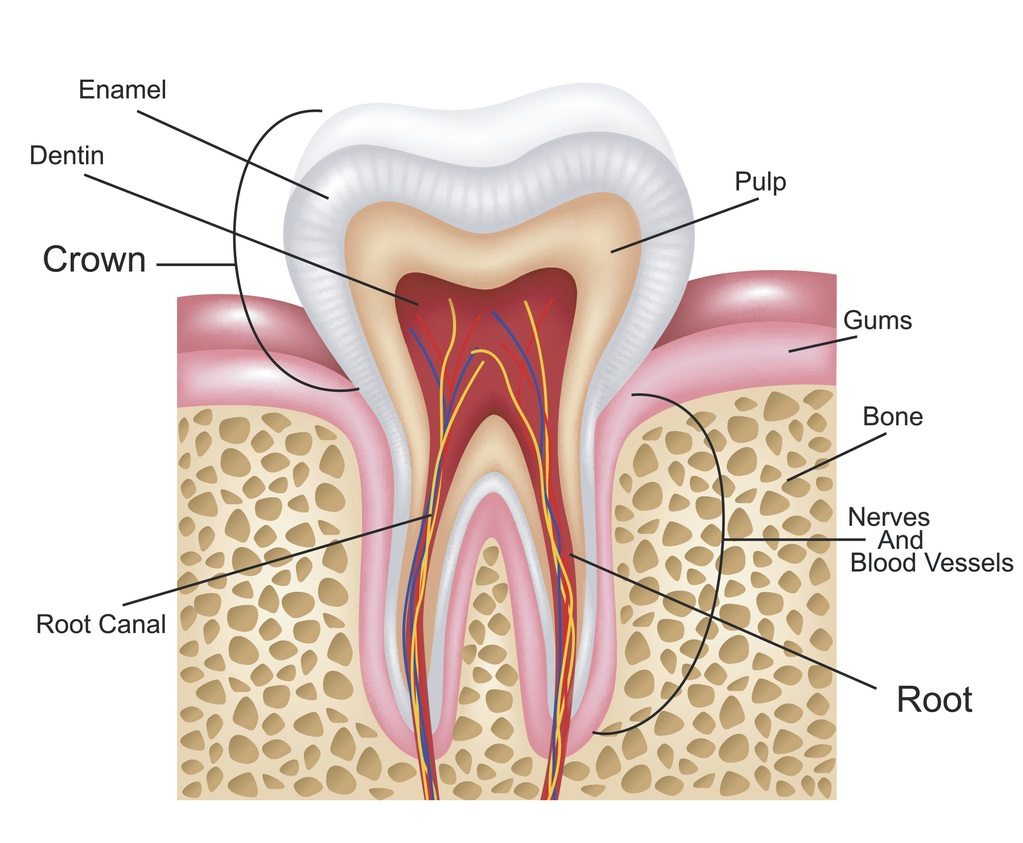The roots of your teeth have narrow openings called canals that contain blood vessels and nerve fibers that provide nutrition and sensation to your teeth. These vessels and nerves play a vital role in the health of your teeth, and if decayed or infected, can cause you pain.
If you have tooth sensitivity or are in pain, visit your dentist to determine the cause and a treatment plan, which may involve a root canal.
A root canal is used to repair a diseased tooth by removing the pulp inside of the tooth and filling the canal to seal the space. This procedure can help save your natural teeth. Root canals are performed by a general dentist or a dental specialist known as an endodontist.
What causes you to need a root canal?
Your dentist may recommend a root canal when your tooth shows signs of infection or significant nerve damage. When a tooth is cracked or has a significant cavity, bacteria is able to enter the pulp, and if left untreated, can lead to serious infection, bone loss, or the loss of the tooth.
The most common causes of pulpal nerve damage are:
- Deep tooth decay (a cavity) that reaches down to the nerve,
- Injury to the tooth,
- A cracked or fractured tooth that involves the pulp.
Signs & symptoms of pulpal damage
The common signs and symptoms of pulpal damage include:
- Tooth pain while chewing
- Oversensitivity of the teeth with cold or hot drinks
- Gum or facial swelling
- Discoloration or graying of the tooth
- Swelling and tenderness of nearby gums
- Drainage from the tooth
Sometimes there are no symptoms present. Scheduling regular dental visits will help identify any potential issues.
The root canal procedure
A root canal can be a routine procedure to relieve pain and save your tooth.
Before the procedure, your dentist will numb the area to prevent pain. They will then carefully remove the infected area inside the tooth canal, clean, and prepare the root canal. A material is then placed to seal the canal and a restoration is placed to cover the opening of the top of your tooth.
In most cases, a tooth that has had a root canal procedure will last a lifetime. However, if tooth pain or infection arise, visit your dentist for further care.
Does it hurt?
Modern technology and techniques have helped root canals be relatively comfortable and effective treatments, similar to a cavity filling. The goal of the procedure is to save your tooth and get you back to good oral health.
A root canal treatment helps maintain your natural smile, relieve pain from chewing so you can continue to enjoy the foods you love, and lessen the need for ongoing dental work.


